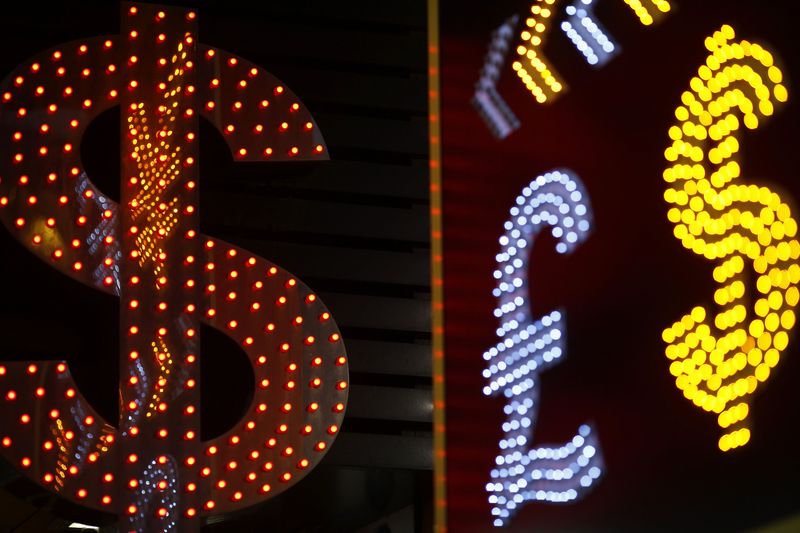By Wayne Cole
SYDNEY, June 30 (Reuters) - The Australian and New Zealand dollars edged ahead on Tuesday as stock markets swung higher once again to the benefit of other risk assets, though concerns about the spread of the coronavirus globally kept a lid on gains.
Sentiment was also helped by a survey of Chinese manufacturing activity which just topped forecasts. Aussie firmed 0.3% to $0.6883 AUD=D3 , continuing the recent follow-the-leader response to see-saw swings in equity markets. The extent of uncertainty about the global outlook has also seen its trading range narrow sharply in the last few days.
Support now lies at $0.6840 and $0.6800, with resistance around $0.6895 and $0.6974.
It was a solid end to a stellar quarter which saw the Aussie rally more than 11% in the past three months, its best performance since late 2010.
The kiwi dollar was up a shade at $0.6423 NZD=D3 and has behaved much the same, with some clarity on the pandemic needed to break the tight trading range. It has support at $0.6399 and $0.6375, with resistance at $0.6450 and $0.6532.
The kiwi is up 7.7% for the June quarter, the biggest gain since mid-2011.
Strong demand for bonds suggests some investors fear a resurgence of the virus will retard economic recovery globally, even as other buy stocks on the expectations of continued stimulus.
Reserve Bank of Australia (RBA) Deputy Governor Guy Debelle on Tuesday reiterated the bank would do whatever was necessary to support the local economy, while also noting the downturn in activity had not been as dire as first feared. is implicitly supporting the extension of fiscal stimulus and support measures, saying that fiscal and monetary support remains warranted," said Craig James, chief economist at CommSec.
Debelle did, however, rule out a shift to negative interest rates, which some analysts have been touting.
That left 10-year bond yields AU10YT=RR steady at 0.888%, just above recent lows and a long way from the June peak of 1.128%.
Three-year yields AU3YT=RR remain at 0.27%, with Debelle noting the RBA had for some weeks not had to buy any bonds to hold yields near their target of 0.25%. (Editing by Lincoln Feast.)
